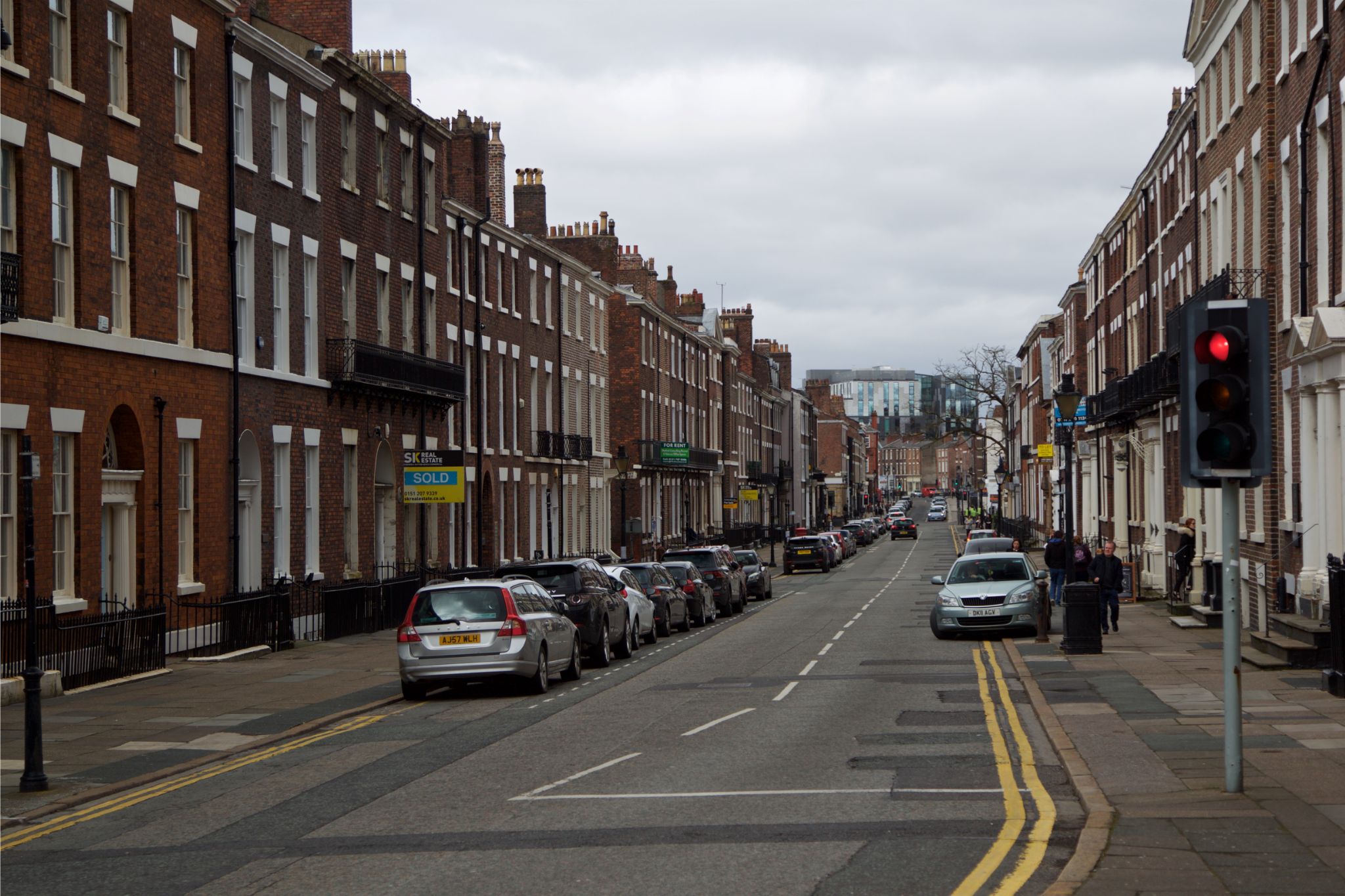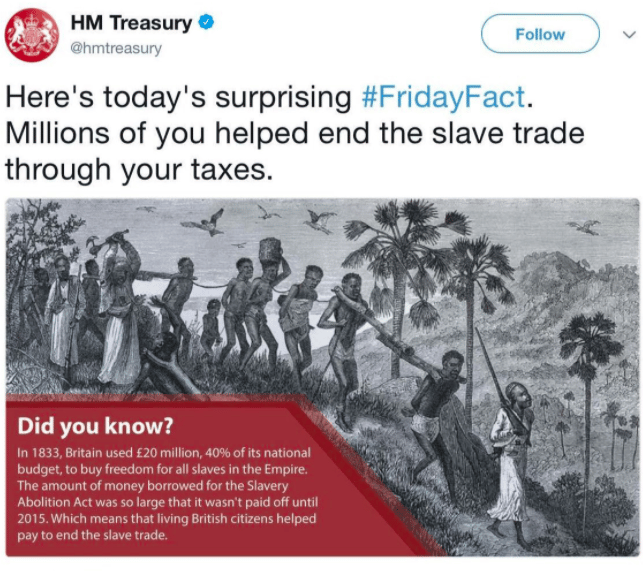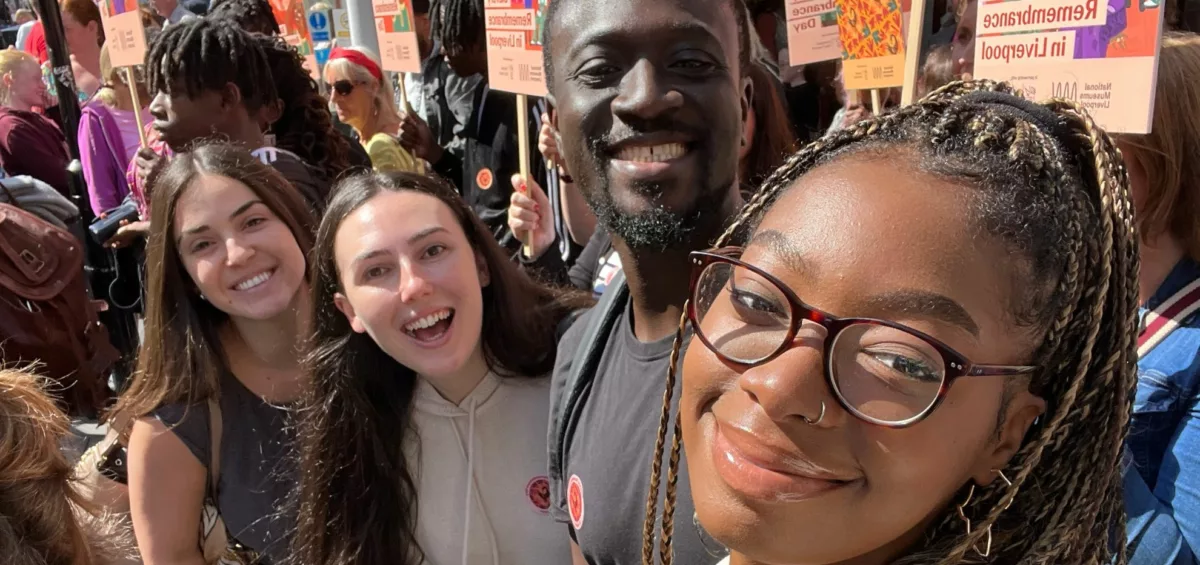Members of CEL Solicitors’ diversity committee took part in a ‘Walk of Remembrance’ through Liverpool City Centre. Read marketing executive, Rebecca’s blog on the significance of Slavery Remembrance Day in Liverpool.
Slavery Remembrance Day, or International Day for the Remembrance of the Slave Trade and its Abolition is observed annually on 23rd August. The day is held to memorialise the transatlantic slave trade.
On this day in 1791, enslaved Africans on the island of Saint Domingue (now known as Haiti) initiated a rebellion. Referred to as The Haitian Revolution, this uprising would play a crucial role in the abolition of slavery.
The Slave Trade in Liverpool
Liverpool is widely known for its unique dialect, world-renowned football clubs, diverse music scene, and breath-taking skyline. However, Liverpool shares deep links to the transatlantic slave trade.
The legacies of slavery and colonialism are still very much present in our city. Many buildings and streets in Liverpool are named after people connected to the slave trade. These include:
Rodney Street, named after George Rodney, a key supporter of the slave trade.
Gladstone Street, named after former prime minister, William Gladstone, who argued against the abolition of slavery.
Parr Street, named after Thomas Parr, a slave trader who owned a ship named after himself with space for 700 enslaved Africans.

“Rodney Street” by Terry Kearney is licensed under CC BY 2.0
The wealth of this city was directly acquired through the enslavement of black people. Profits from the slave trade resulted in huge economic growth for Liverpool, making it the largest and most prominent slave trading port in Britain.
People are often desensitised to the horrors of slavery because it occurred long ago, or because it did not take place on British soil, but the racial inequality that the slave trade enabled still persists in our culture today.
After the British government passed the Slavery Abolition Act in 1833, the same government borrowed £20 million to compensate slave owners for lost capital. This loan, which is one of the largest in UK history, made up 40% of the government’s yearly income – equivalent to about £17 billion today.
William Gladstone, mentioned earlier, received about £90,000 in compensation – £9.5 million in today’s terms. His father, John Gladstone claimed the largest sum of money as compensation for slavery abolition. This wealth enabled the family to prosper politically and economically. Both father and son were also active in securing compensation for others.
Read more: Marketing Executive, Rebecca works with National Museums Liverpool

Back in 2018, HM Treasury tweeted: “Millions of you helped end the slave trade through your taxes”. The tweet claimed that the loan Britain took out to pass the Slavery Abolition Act “bought freedom for all slaves in the Empire”. What the public body failed to mention was that this loan (which was only paid off by British taxpayers in 2015, 182 years later) was in fact used to compensate slave traders for their crimes against humanity. This should show that the impact of the slave trade as an economical force is hugely disregarded and misunderstood.
Generations of taxpayers money has contributed towards this heinous debt, yet neither the enslaved nor their descendants received a single dime.
The common misconception goes that Britain abolished slavery. However, it is important to note that the Slavery Abolition Act did not put an end to slavery at all. Plantation slavery remained legal in British colonies, and as we now know, slave traders profited immensely even after the act was passed. It was not Britain, but the enslaved people themselves, as well as European radicals who began revolting against slavery.
Slavery Remembrance Day in Liverpool
Slavery Remembrance Day has been commemorated in Liverpool since 1999.
This year, National Museums Liverpool hosted a variety of free events from dance workshops to keynote lectures.
The Walk of Remembrance saw a vibrant group of drummers, Katumba, marching through the city centre, leading the walk. At each stop, Liverpool historian, Laurence Westgaph provided a brief overview of the historical significance of each location.

Spoken word artists, poets, and musicians performed at historical landmarks throughout the city, such as the Bluecoat and Liverpool ONE’s Old Dock.
Commenting on the day, financial mis-selling paralegal, Celeste, said:
“I really enjoyed the Walk of Remembrance through Liverpool City Centre. It was a good mix of vibrant and exciting music with a Brazilian drumming band leading the walk. It was fascinating to hear more about Liverpool’s history in the transatlantic slave trade with talks given by local historians. I think it is really important to understand our city’s history and to commemorate days like this. The day was a good mix of celebration of cultures and remembrance of the past.”

Moving Forward
While we acknowledge slavery as an utterly wicked event in human history, black history did not begin nor end with slavery. It is important to celebrate the legacy and achievements of black people.
As we reflect on the atrocities of the slave trade, may we also pay tribute to the men and women who fought against such oppression. Slavery Remembrance Day is not just about remembering the horrors of slavery; it is also about honouring its victims, educating future generations on black history, and ensuring that the oppressive systems which caused slavery are abolished completely in today’s world.
Slavery is unfortunately not a thing of the past. Modern slavery is all around us, but often just out of sight. Forty million people are estimated to be trapped in modern slavery worldwide, including the United Kingdom. The people making our clothes, working in factories, serving our food, or working in houses as cooks, cleaners, or nannies can be victims of modern slavery. Visit antislavery.org to find out more about modern day slavery, and be sure to read this list of local, national and international anti-slavery organisations.
CEL Solicitors’ diversity committee meets monthly to discuss new initiatives to improve equality, diversity and inclusion within the firm. We aim to challenge preconceptions, prejudice, and ignorance by being open-minded and finding new ways to positively contribute to the workplace and wider society.
Further Reading
Liverpool’s Slave Trade Legacy
Liverpool and Slavery: A Map For Remembrance, Healing, and Empowerment
Create UK public holiday to remember horrors of slave trade, says race expert
Britain’s Slave Owner Compensation Loan, reparations and tax havenry













